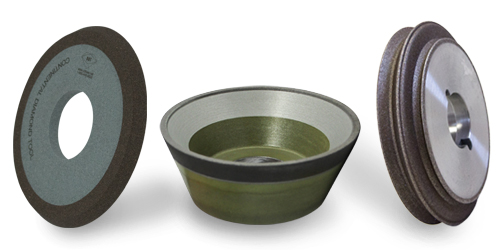Hardness Matters. Best Materials for Drilling, Cutting and Grinding
A natural diamond is the hardest material on the Knoop Hardness Scale, as is well known. It is considered a superabrasive, and has a long list of things it is regularly used to drill or otherwise shape. Glass, plastic, cemented carbide, ceramics, fiberglass, electronic components and materials, and titanium alloys are just a sampling of the things a diamond can cut. This is true whether the diamond is natural, manmade, or polysrystalline, as all three of these diamond types top the Knoop Hardness Scale. This means that even non-natural diamonds are harder than anything else except a natural one.
Right after the diamonds comes the Cubic Boron Nitride (CBN). This measures at nearly 5,000 on the Knoop Hardness Scale (compared to the 10,000 for a natural diamond, for comparison). At only half the hardness of a natural diamond, CBN is the only other material besides synthetic diamonds that is hard enough to be considered a superabrasive.
Everything else on the Knoop Hardness Scale is less hard than natural and synthetic diamonds and CBN. This means these things can cut through nearly everything else. The vast difference between the hardness of a natural diamond and the hardness of CBN shows just how relatively soft everything else on earth is in comparison to a natural diamond. If it wasn't for CBN, there would be no other super abrasive at all.
Superabrasives are split into two categories: CBN for use with ferrous material, and diamond for almost all other materials. Conventional Abrasive grinding wheels are also split into the same two categories. Silicon Carbide is known to chemically interact with ferrous materials making it less than ideal for such materials. Aluminum Oxide, despite being somewhat softer than Silicon Carbide, does not have chemical reactivity with Ferrous materials, and is therefore a better choice for these materials.
So the question becomes which is the better choice; conventional abrasive or superabrasive grinding products for your application? In general, superabrasive grinding wheels can provide 100-300 times the grinding wheel life when compared with conventional abrasives due to their higher hardness values, while only costing 10-30 times the wheel price. However, significant other variables have to be considered when determining which type of grinding wheel is best for your application. These include the machine/grinder, dressing of the grinding wheels, work piece material properties, coolant type and delivery, etc…..
Please contact one our experienced engineers to help evaluate your grinding process today to see if superabrasives are the ideal solution for your grinding application.


